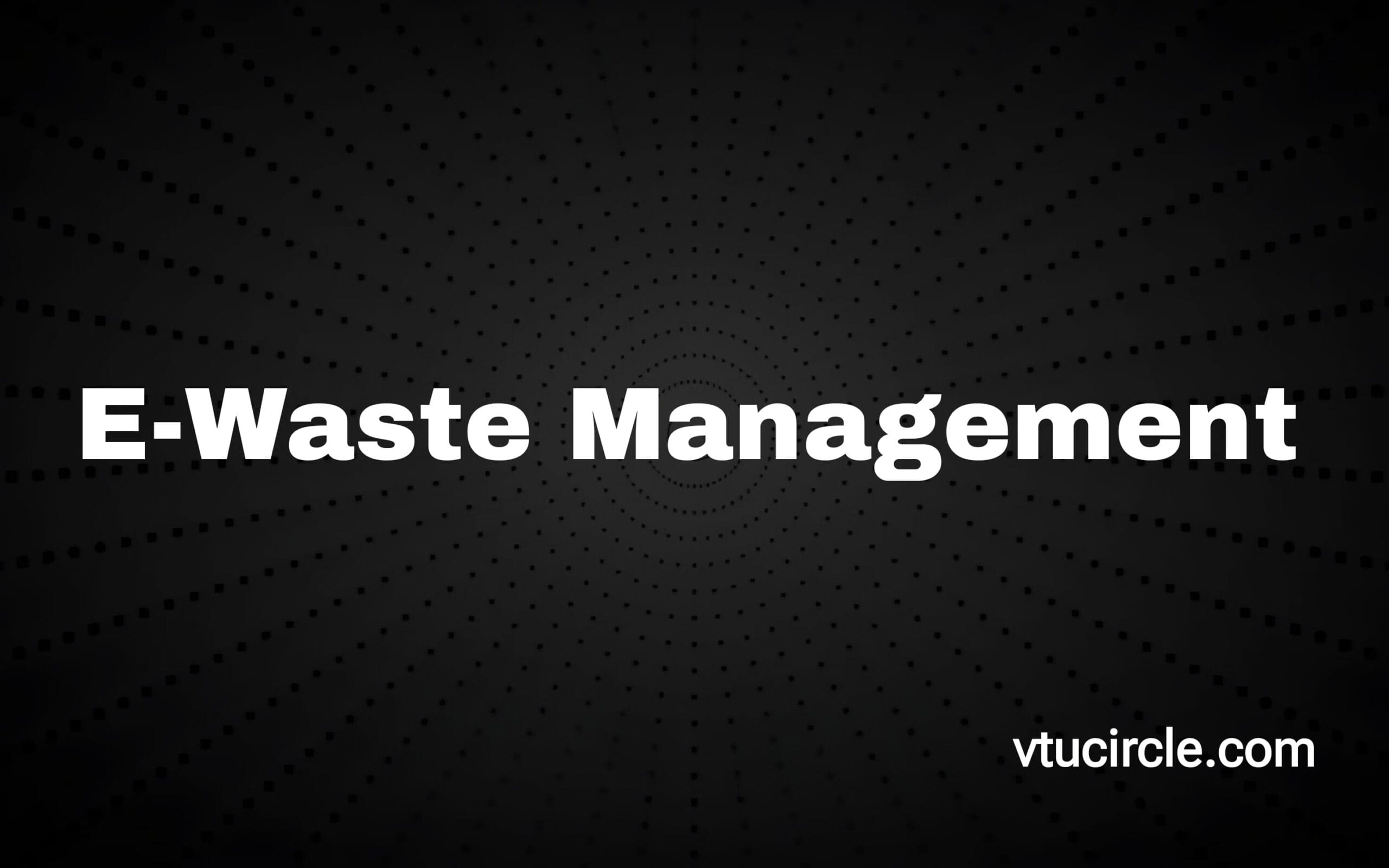E-waste Management 21EC755
Course Code: 21EC755
Credits: 03
CIE Marks: 50
SEE Marks: 50
Total Marks: 100
Exam Hours: 03
Total Hours of Pedagogy: 40H
Teaching Hours/Weeks: [L:T:P:S] 3:0:0:1
Sustainable development and e-waste management: Importance of electrical and electronic equipment in a nation’s development, and e-waste as toxic companion of digital era, I: Let’s understand e-waste, II: E-waste statistics: quantities, collection and recycling, E-waste categories and harmonising statistics, III: An overview on status of e-waste related legislation across the globe; IV: UN initiatives for e-waste management: creating partnerships and achieving Agenda 2030; V: Indian scenario: e-waste generation, collection and recycling.
Extended producer responsibility: a mainstay for e-waste management: Evolution of concept of ‘extended producer responsibility’, EPR applied for waste management and extended for e-waste management, EPR: goals, implementation, and challenges for e-waste management, EPR implemented for e-waste management under the existing regulatory frameworks in different countries, Role of a PRO prescribed in regulatory framework, Considerations for successful implementation of EPR, Challenges in implementation of EPR for e-waste management, Impact of EPR, EPR and e-waste management in India.
Toxicity and impacts on environment and human health: Toxicity, recycling, and regulations, I: Environmental concerns, II: Human health concerns.
Treating e-waste, resource efficiency, and circular economy: Safe environment, resource use, and circular economy, Circular economy: recycling, resource recovery, and resource efficiency, Potentials of urban mining in circular economy, Recycling and resource efficiency related challenges to the circular economy, Urban mining, recycling, resource use, resource efficiency, and circular economy in India.
E-waste management through legislations in India I: Historical backdrop of regulatory regime for e-waste in India, II: E-waste (management) Rules, 2016 and E-waste (management) Amendment Rules, 2018, III: Analysing performance of EPR and CPCB as regulatory mechanisms, IV: Legal cases and judicial directives.
Strategies and initiatives for dealing with e-waste in India I: Overview of pan-India initiatives for dealing with e-waste during 2000 and 2012, II: Law-driven e-waste management – initiatives by the government, non-government agencies, and judiciary.
Moving towards horizons I: Legal and judicial domain, II: Economic concerns, III: Environment concerns, IV: Recycling culture/recycling society.


Please provide question paper for EWM for 21scheme